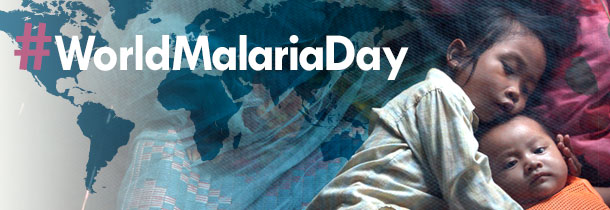
Today, we join the global health community in marking World Malaria Day. As we reflect on the major strides being made against this deadly disease, we also recognize that critical obstacles remain. Effective vector control measures such as the widespread use of insecticide-treated bed nets, availability of better diagnostic tools, and timely treatment all helped malaria death rates fall by 29 percent in at-risk populations from 2010 to 2015. Yet even with this progress, malaria remains an urgent public health challenge. The World Health Organization reported 212 million cases of malaria and 429,000 deaths in 2015, with 90 percent of the cases occurring in Sub-Saharan Africa.
“Since we need antimalarial medicines to treat the disease, how could there be an end to malaria without ensuring their quality?” asked Jude Nwokike, the director of the Promoting Quality Medicines (PQM). “So, in order to end malaria for good, it is critical to have a sustainable supply of quality-assured antimalarials and to eliminate falsified and substandard malaria-related medical products.” Poor-quality antimalarial medicines jeopardize the advances achieved and may contribute to drug resistance, which has historically rendered many malaria treatments ineffective. A 2016 Malaria Journal article, “Fake Antimalarials: Start with the Facts,” describes a quality survey of more than 10,000 antimalarial medicines sampled in six countries from Africa and South East Asia where malaria is widespread. Lab analyses showed falsified medicines in two countries and substandard medicines in all six. The authors explain the public health impact of poor-quality malaria medicines and discuss strategies to address this problem.
One of the article’s authors is an expert from the PQM program, a public health initiative funded by the United States Agency for International Development, USAID, and implemented by the U.S. Pharmacopeial Convention. PQM works in low- and middle-income countries supporting and strengthening drug regulatory systems and building local capacity to address critical challenges related to medicine quality. Key components of PQM’s support include helping countries establish reliable national quality control laboratories and developing post-marketing surveillance programs to protect the public from the dangers of falsified and substandard medicines.
PQM, through support from the President’s Malaria Initiative, contributes to advances against malaria around the world, particularly in sub-Saharan Africa, Southeast Asia and in Central and South America. In 2016 a number of PQM activities helped strengthen quality assurance systems and support countries’ capabilities to fight malaria. Key activities included:
- Contributing to updating of a law in Guinea to better regulate and control the quality of all medicines, including antimalarials.
- Helping Nigeria’s Federal Ministry of Health develop a National Quality Assurance Policy that boosts capacity to help protect the public from poor quality medicines.
- Testing hundreds of medicine samples to help remove falsified, substandard and illegal antimalarial drugs from circulation in Angola, Benin, Burkina Faso, Guinea, Kenya, Liberia, Malawi, Mali and Nigeria.
- Enhancing Peru’s quality control lab’s ability to screen for medicine quality in the field using new methods.
Through these efforts and others, working with international and local partners to build local capacity to detect and remove poor-quality antimalarial drugs from the marketplace, PQM is helping to contribute to further advances against one of the world’s deadliest diseases.
To learn more about PQM visit: http://www.usp-pqm.org/


